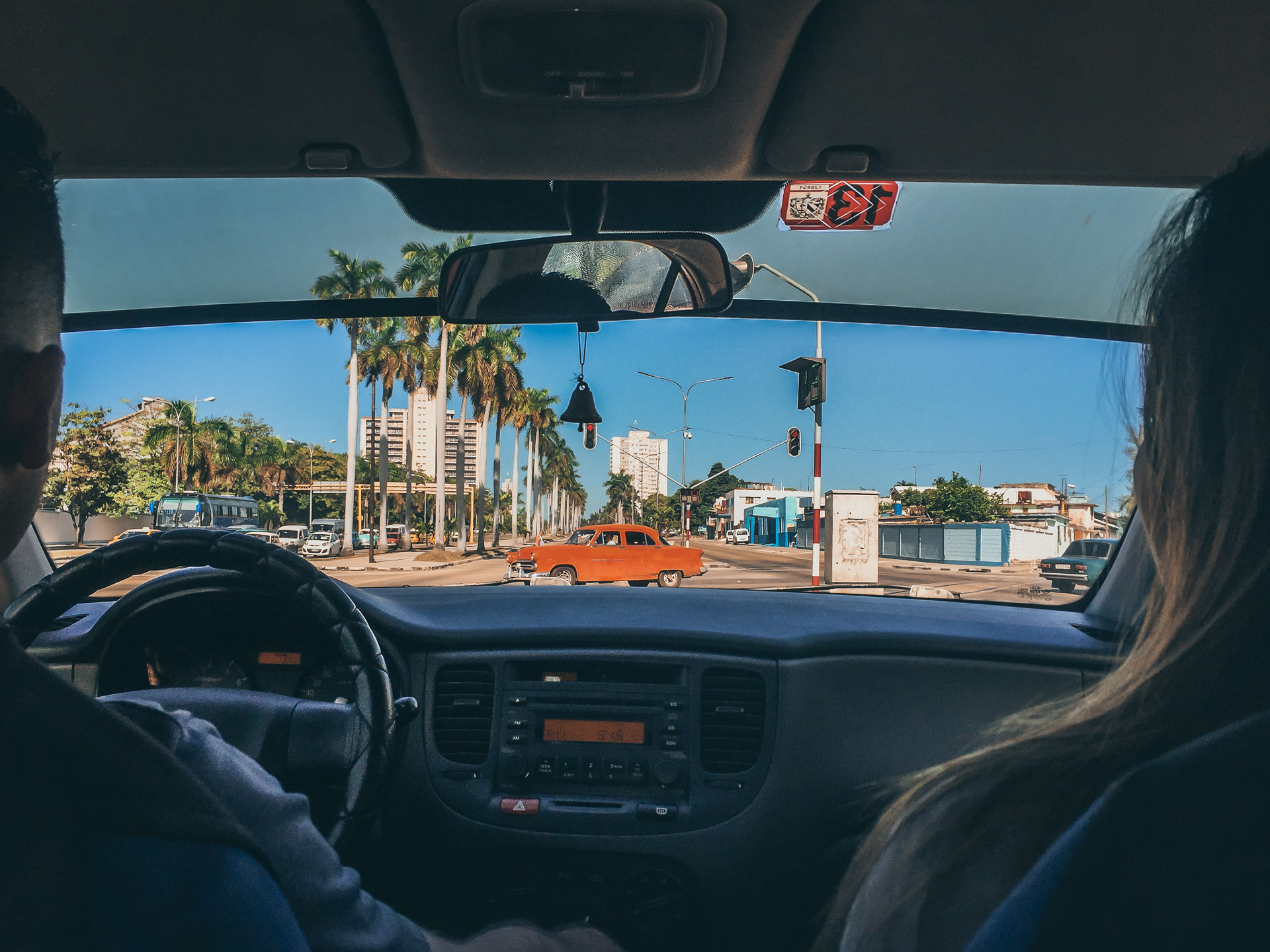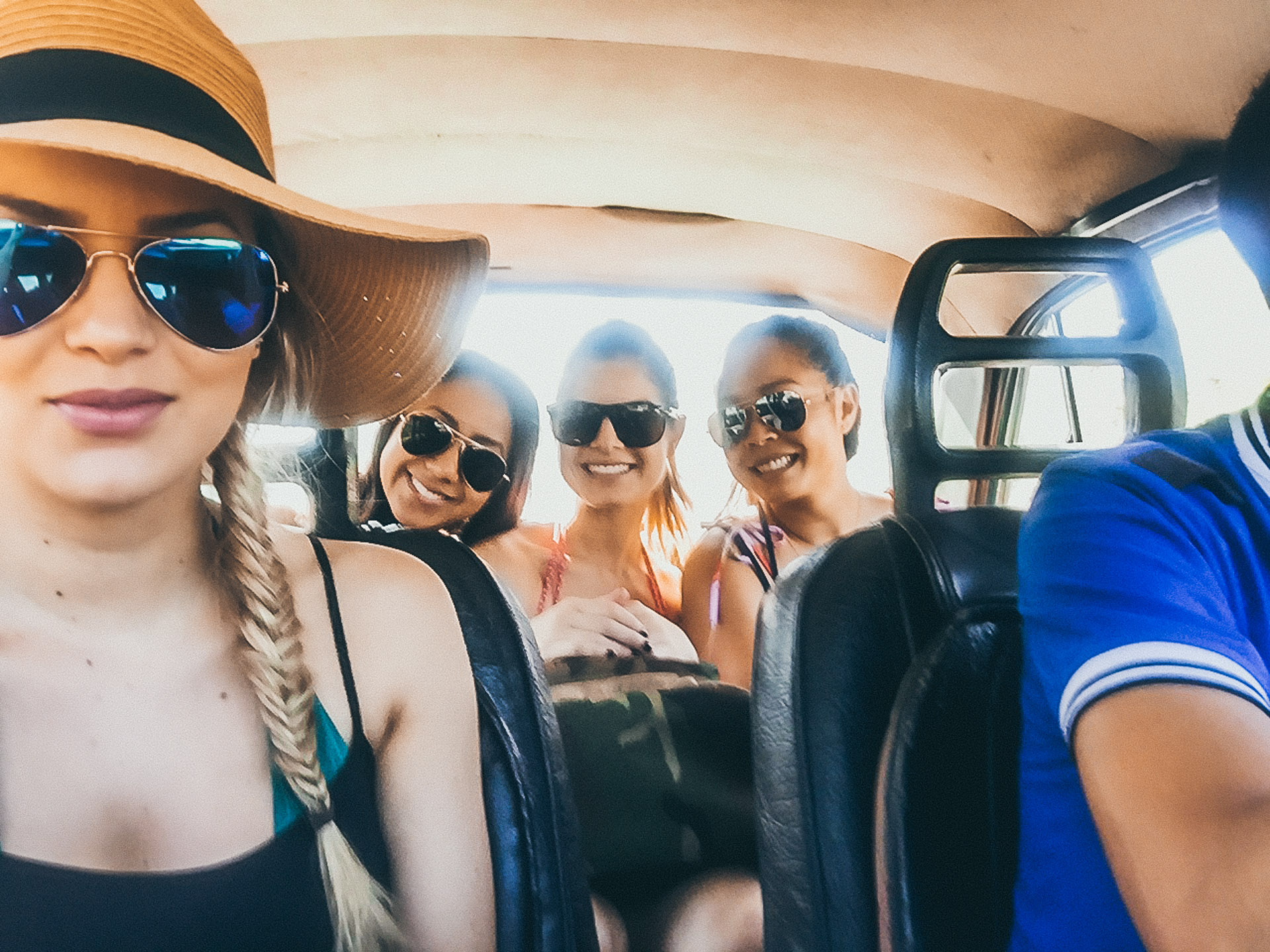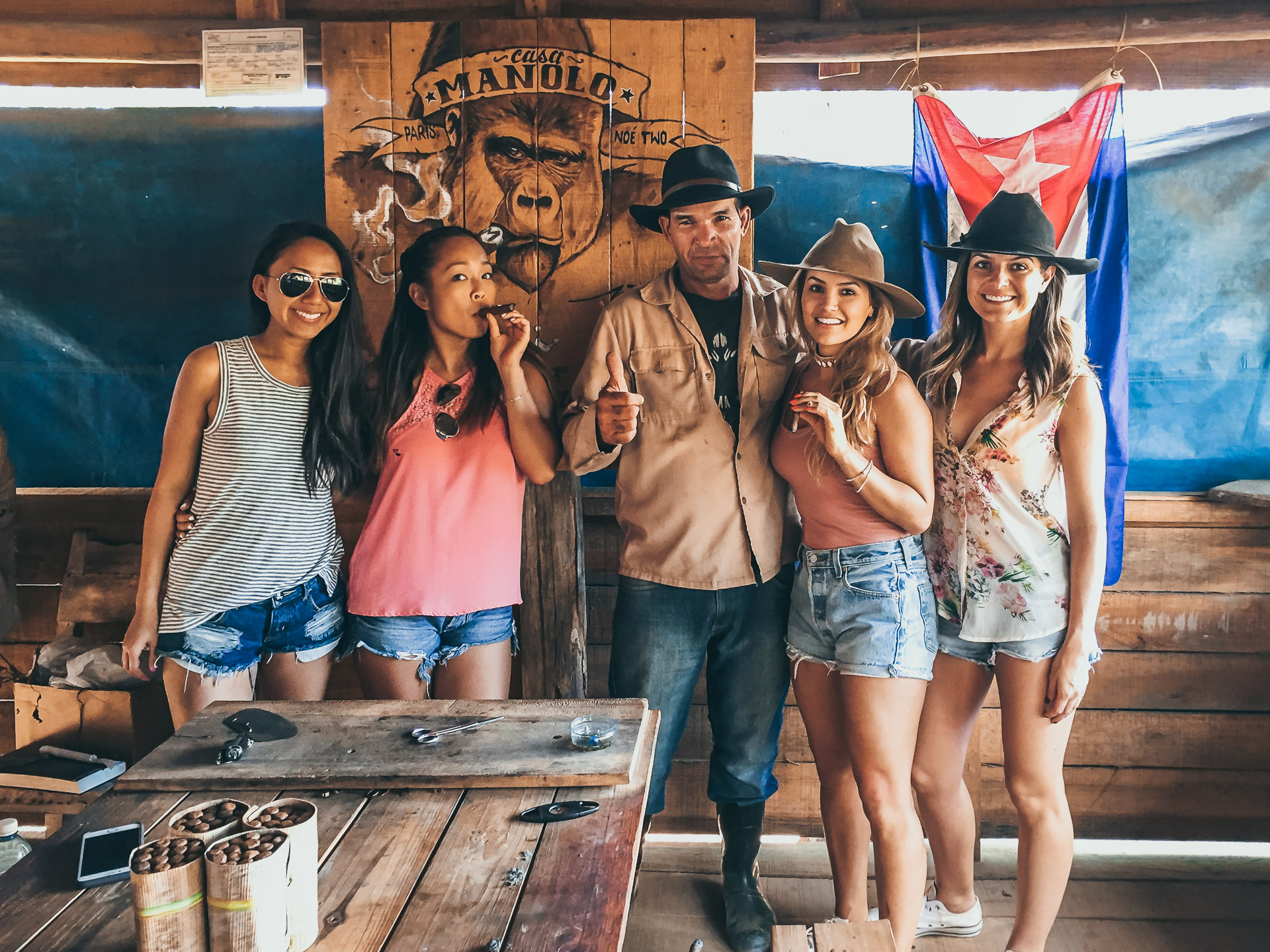Cuba: Hidden Gratitude

My trip had officially come to an end as I boarded my direct flight to LAX from Havana. Usually, when I leave a new destination, I have this aching sense of nostalgia wishing my trip lasted longer and thinking about when I’ll be able to return. This occasion was different. I couldn’t remember the last time I had been so happy to arrive home from vacation, except maybe when…well, actually never. Before I could even get comfortable in my assigned seat on the nearly empty flight, I grabbed a menu out of the seat pocket and thought to myself whatever it costs, I’ll pay. Airplane food had never looked so appetizing or seemed so affordable!
The reason I was so jubilant to be heading home while I scarfed down a cheese and nuts platter, that I would have considered sub-par any other time, was because I had just spent five days in a country feeling deprived. Deprived of many things that before this trip I considered daily essentials and would have laughed at anyone who called them luxuries. Things like, potable water from the tap, hot showers, an endless supply of water, throwing toilet paper in the toilet and being able to flush twice in the span of 10 minutes. In Cuba these are luxuries, and for the Cuban people this is everyday life, most of them know nothing different. They line up at banks once a month to get their allowance, approximately $35, to last them the next four weeks. If they want to get groceries, there’s no such thing as a one-stop-shop. One market sells eggs, another sells household items, another may sell alcohol and other beverages. It would take hours to go grocery shopping as supplies are very limited and many things are rationed or subsidized for citizens.
I have been to other countries where supplies were limited, and plumbing wasn’t up to first-world standards, but for some reason, the conditions in Cuba rattled me. I could never live like this, I thought, and what an ungrateful thought that was.
Before my trip to Cuba, the first thing that always came to mind when I thought of the Caribbean island were images I had seen on blogs and travel sites. Beautifully restored classic cars parked in front of colorful well-kept art-deco buildings on clean, paved, palm-tree-lined streets with turquoise water blurred in the background. While these cliché portrayals did exist, they were not the norm. A few blocks away from Plaza Vieja, the most touristy area in Havana, are streets saturated with potholes and worn-down pavement. The buildings are dilapidated and seemingly untouched since the 50’s with only bits of paint left on their facades. Garbage and concrete rubble shoved to the sides of the roads while kids play in the streets improvising with a basketball to play soccer.
This unattractiveness is something you’ll rarely see described while scouring the internet or travel books about “top things to do in Cuba.” Instead, you’ll read about the Malecon, the five-mile esplanade along the coast of Havana “where locals hang out, and you can drink some wine while the sun sets.” Or at least one, if not all of three areas accommodating tourists and their westernized desires like Plaza Vieja, Habana Vieja, and Centro Habana. Oddly enough these “top things” happen to be the places that are most modernized and charming. Coincidence? Yeah, coincidence, like when Fidel Castro went to another country to seek medical attention.
If it seems like I’m drowning in distaste for Cuba and bitterness about my so-called deprivation, I assure you that’s not the case. My time in Cuba allowed a cultivation of respect, appreciation, and admiration for the Cuban people. What should be written about Cuba is something much more than the shallowness of classic cars and beautiful architecture. What should be written about is not necessarily the country, but it’s people. Their love and loyalty to their culture, the daily happiness written on their faces as they talk about their city and monuments that represent national heroes. Their friendliness to anyone and everyone without regard to race, gender or sexual orientation, the joy of socializing with their neighbors on the stoop of their apartment building, in the middle of the street or on the Malecon. Their eagerness to teach Cuban phrases and their curiosity as they ask, almost instinctively, “de donde eres?” meaning where are you from. Cubans, despite oppression for nearly five decades under the power of Fidel Castro, are impressively positive, proud, resilient and resourceful.
My trip to Cuba is an experience that will forever mark a pivotal realization in my life. One that placed a microscope on daily self-indulgences and implored me to view my sense of entitlement to simple resources as a luxury. As I reflected during my flight home, I realized that my heart was filled with a surplus of newly gained gratitude. Gratitude for living in a free country, gratitude for water that I could drink straight from the tap, gratitude for a variety of food at my fingertips in quantities that could feed a small family if I so desired, gratitude to freely travel outside of my homeland, gratitude to drive my car down the street and buy all my groceries in 10 minutes, and most importantly gratitude to the Cuban people for their unmatched hospitality and personification of gratitude.
When asked how my trip to Cuba was my response is often something like “it was very interesting, Cubans are some of the nicest, most genuine and proud people I have ever met.” What I don’t always mention is what the trip taught me, and that lesson, like Robert Frost wrote in The Road Not Taken, is what “made all the difference.”





















